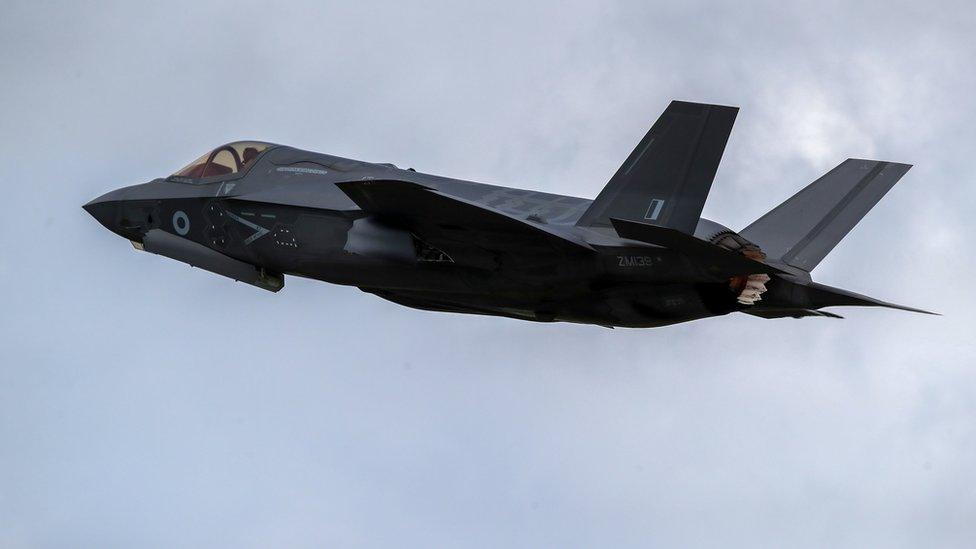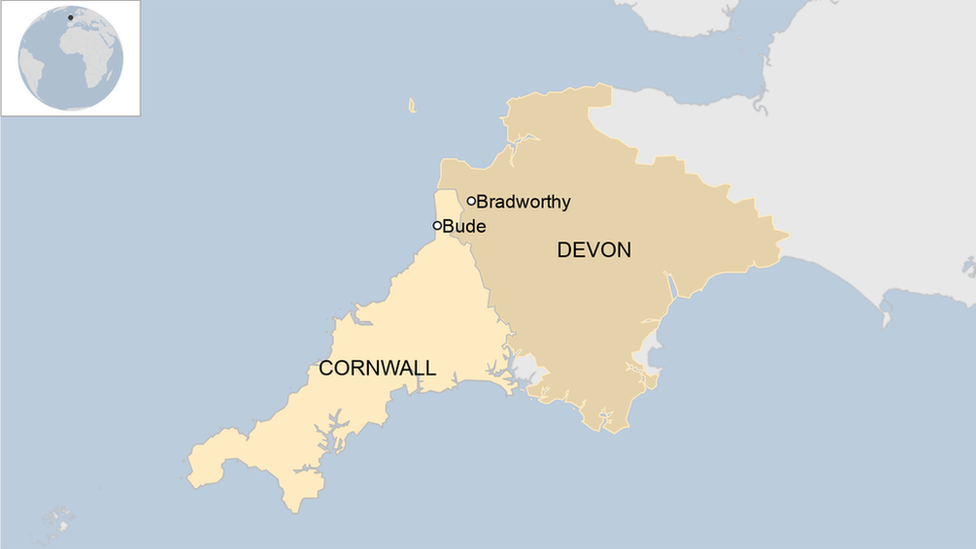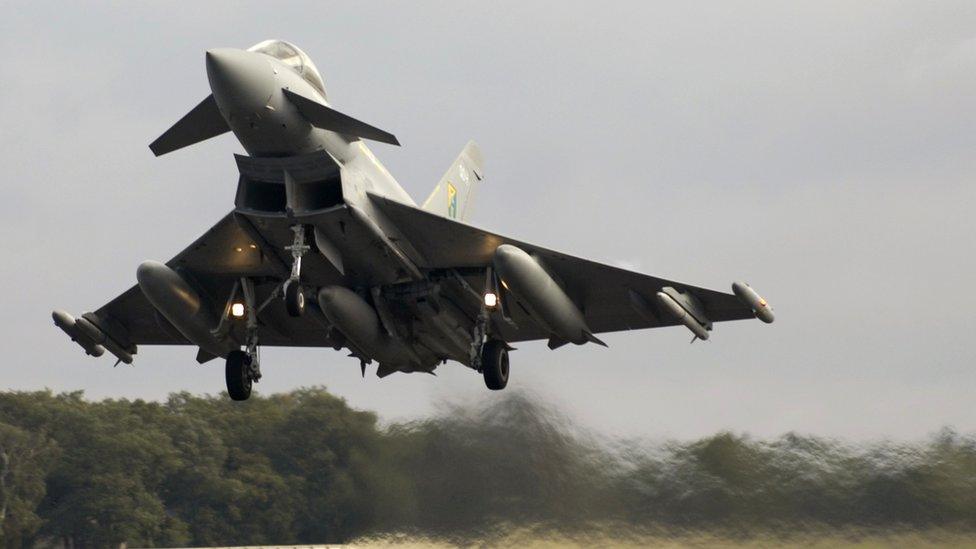Sonic boom heard over north Cornwall and Devon
- Published

The F-35 Lightning caused the sonic boom heard in Cornwall and Devon
A sonic boom has been heard across north Cornwall and neighbouring Devon.
Residents in the Bude area in Cornwall started saying on social media at about 12:15 GMT that they heard "a big bang", an "explosion" or "rumblings".
The noise was heard more than 14 miles (23km) away in Bradworthy, Devon, with people saying buildings shook and one thinking "it was an earthquake", external.
The RAF said it was caused by F-35 Lightning aircraft training about 25 miles (40km) offshore.

People in Bude and other areas which heard the bang said buildings shook
Helen Wilkins, from Bude, told the BBC: "We thought a large bird had hit the window, as all the birds in the garden took off."
She added that there was "lots of noise from a jet in the area for half an hour afterwards".
Another commentator on Twitter, Bert Littleman, from Holsworthy, said that, external "planes seemed to be going around in large loops after the bang" and he saw them "heading Bude way at very high speed a while after".
Allow X content?
This article contains content provided by X. We ask for your permission before anything is loaded, as they may be using cookies and other technologies. You may want to read X’s cookie policy, external and privacy policy, external before accepting. To view this content choose ‘accept and continue’.
Allow X content?
This article contains content provided by X. We ask for your permission before anything is loaded, as they may be using cookies and other technologies. You may want to read X’s cookie policy, external and privacy policy, external before accepting. To view this content choose ‘accept and continue’.
The RAF said the aircraft were "completing operational training" inside a "supersonic offshore range area".
It said such events were usually "sufficiently far out to sea to not cause sonic booms to be heard... under normal environmental conditions".
However, it added that "climatic conditions... may have been a factor" in it being heard so far inland.
It said "any inconvenience caused to local residents is regretted".

What causes a sonic boom?
When an aircraft approaches the speed of sound, the air in front of the nose of the plane builds up a pressure front because it has "nowhere to escape", said Dr Jim Wild of Lancaster University.
A sonic boom happens when that air "escapes", creating a ripple effect which can be heard on the ground as a loud thunderclap.
The speed of sound varies. It is about 770mph (1,200km/h) at sea level, but slower at higher altitudes. A plane flying at 30,000ft would reach the speed of sound at about 675mph (1,085km/h), according to NASA's educational website, external.
It can be heard over such a large area because it moves with the plane, rather like the wake of a boat spreading out behind the vessel.
RAF jets are only given permission to go supersonic over populated areas in emergencies, usually when they are required to intercept another aircraft.

Follow BBC News South West on Twitter, external, Facebook, external and Instagram, external. Send your story ideas to spotlight@bbc.co.uk, external.
Related topics
- Published12 January 2021

- Published12 January 2021
